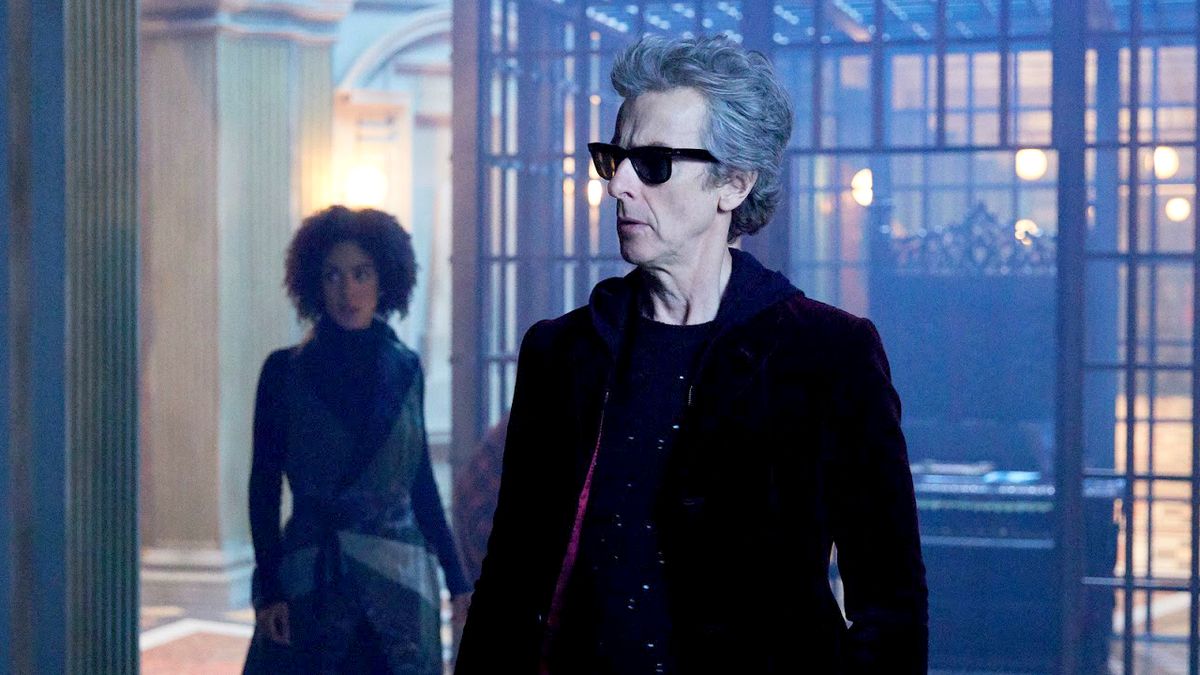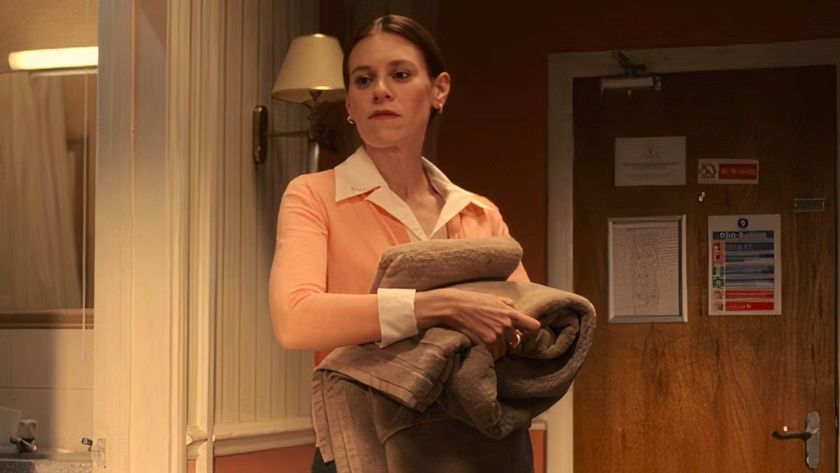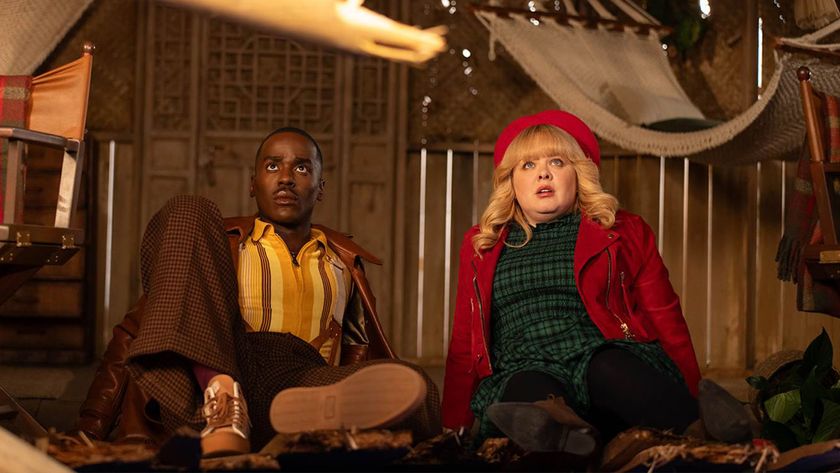12DOVE Verdict
Doctor Who doesn’t get better than this. Each detail winds into the wider picture, turning an original idea into a masterpiece that studies the human (and Time Lord) spirit.
Why you can trust 12DOVE
Caution: big spoilers for this episode of Dr Who occur right at the start of this review.
Reality is an odd thing. Imagination, the journeys we take inside our head, the dreams we have at night: each feel real in the moment. It’s only when we wake up that we realise how far from ‘reality’ we really were. And yes, I’m putting that in quotation marks. Because honestly, after watching this episode of Doctor Who I’m a little unsure how we could be certain we’re not living in a fiction. Extremis toys with this idea in a sophisticated way, weaving together computer science, video games, and the human spirit (sounds mushy, I know). The result is a nuanced, comprehensive tour of an idea that would shake anyone to their very core, were it true.
Thankfully, it’s not. The idea that we’re part of a simulation created by an alien race to ‘test out’ their conquering skill is… well, it’s enough to turn anyone suicidal. So it’s no surprise when a book exposing this truth finds its way into the hands of various priests that they kill themselves after reading it because it proves that they’re not real. The robes they wear, the Doctor, Bill, the TARDIS: they’re all parts of an alien computer simulation. The reason I’m telling you the twist so soon in a review is so you can put all of this into perspective. Extremis is astounding because at first you think suicide is an escape: the characters discovered something so terrifying they wanted to flee from it in the most extreme way possible. But that’s not the case. They did it as a way to rebel. A way to say ‘fuck you, you’re not getting my data’ to the aliens running the simulation. A final way to flip the bird. It’s a testament to the human spirit, and the Doctor should have questioned it the first chance he got. Showing our own ignorance at the same time, we just thought it was a cheap shock tactic. It’s not.

Yeah, okay, so that’s a pretty sweet twist, but the simulation thing has been done before. Inception, Rick and Morty, The Cabin in the Woods, The Matrix, etc. It’s not new. Yet Doctor Who takes it one step further. Planted in our minds at the outset is the idea of ‘Virtue in Extremis’: the idea that virtue isn’t really valid until it is tested to the extreme. Virtue is only genuine when it’s without hope, without witness, and without reward. Missy herself says that (oh yeah, Michelle Gomez is back. Hold your applause, please) as a way to try and escape her imminent execution. She’s the Doctor’s nemesis, the untrustworthy, sharp, unpredictable genius. We don’t care about her speech. Those words are just her attempts to fool the Doctor that she can be reformed. Those pretty words don’t mean anything. At first.
When you realise that nothing you’ve seen is ‘real’, you see how fooled you were from the very beginning like the Doctor, Bill, and Nardole. You see that the suicides, initially looking like a bit of cheap intrigue, were a clue all along. The book Veritas isn’t just a plot device used to introduce the monsters, it’s the key to the entire episode. So is Missy’s virtue in extremis theory. Gomez’ portrayal of Missy’s newfound sincerity underlines the simulated Doctor’s final act: when nothing matters remaining good is the ultimate test. That code of behaviour means everything. And it came from Missy’s mouth. Just think about that for a second.

Now I find myself asking what Missy will be like in future episodes; will she follow her own guidelines? She must have been observing the Doctor for a long while to be able to make that kind of conclusion about what goodness really is, implying that she’s not a purebred maniac. She’s studied the concept of virtue, and simply chooses not to follow it herself. Which somehow makes her evil acts even more menacing. She simply doesn’t like being good, yet understands it better than the Doctor. When she gets released from the vault - because come on, that’s going to happen eventually - will she be her usual self, or sacrifice herself to demonstrate virtue in extremis? Apparently Missy is a far more complicated regeneration of the Master than we realised. God, I don’t want her to go.
Nardole and Bill get some rare time together without the Doctor’s invasive wit. Nardole’s protective side is a delight to witness, as is another one of his Nardole-you’re-scaring-me moments. Responding to Bill’s question about whether he’s a ‘secret badass’, he comes out with “nothing secret about it, babydoll” and made me guffaw with laughter. I hope we get to see more of this badass Nardole, preferably alongside the new, more principled Missy.
It’s looking like this series is gearing up to test the characters. The Doctor is still blind and just as stubborn as ever that he doesn’t need any help; Nardole has shown his hard side yet again and is beginning to bond with Bill. Missy might stick to her promise and remain good - for as long as the Doctor keeps an eye on her, that is. And sorry, simulation-aliens: I don’t think you’re going to last very long.
While here at GamesRadar, Zoe was a features writer and video presenter for us. She's since flown the coop and gone on to work at Eurogamer where she's a video producer, and also runs her own Twitch and YouTube channels. She specialises in huge open-world games, true crime, and lore deep-dives.
Most Popular









